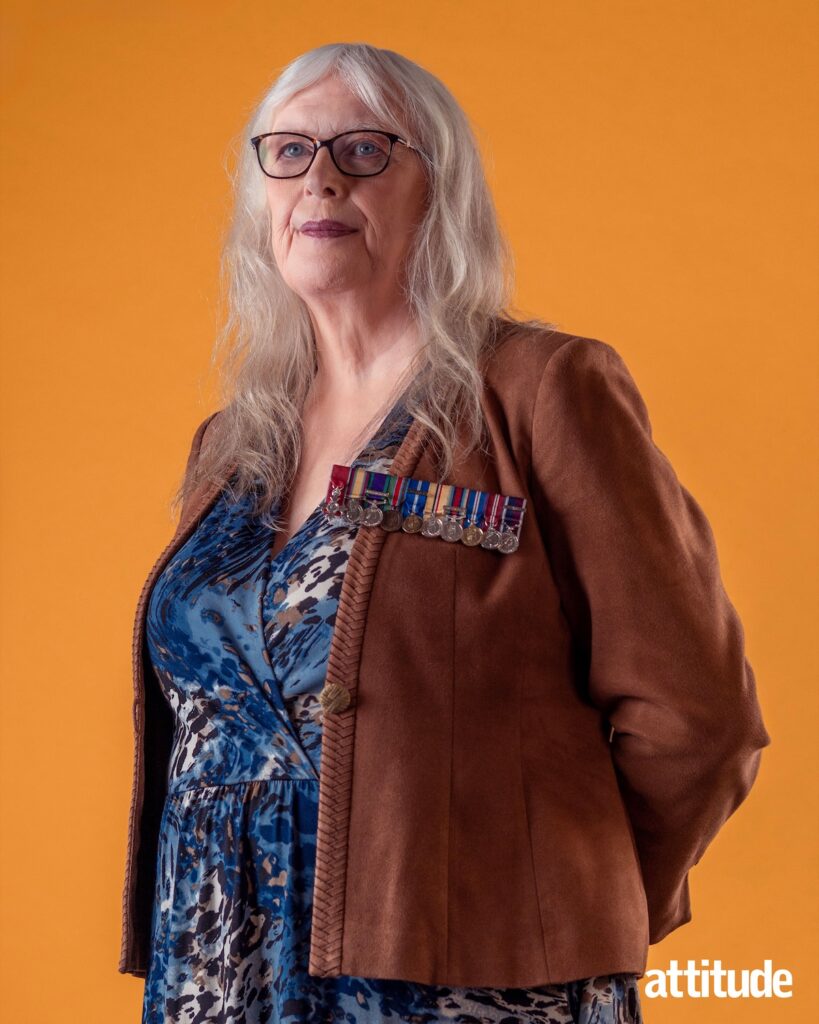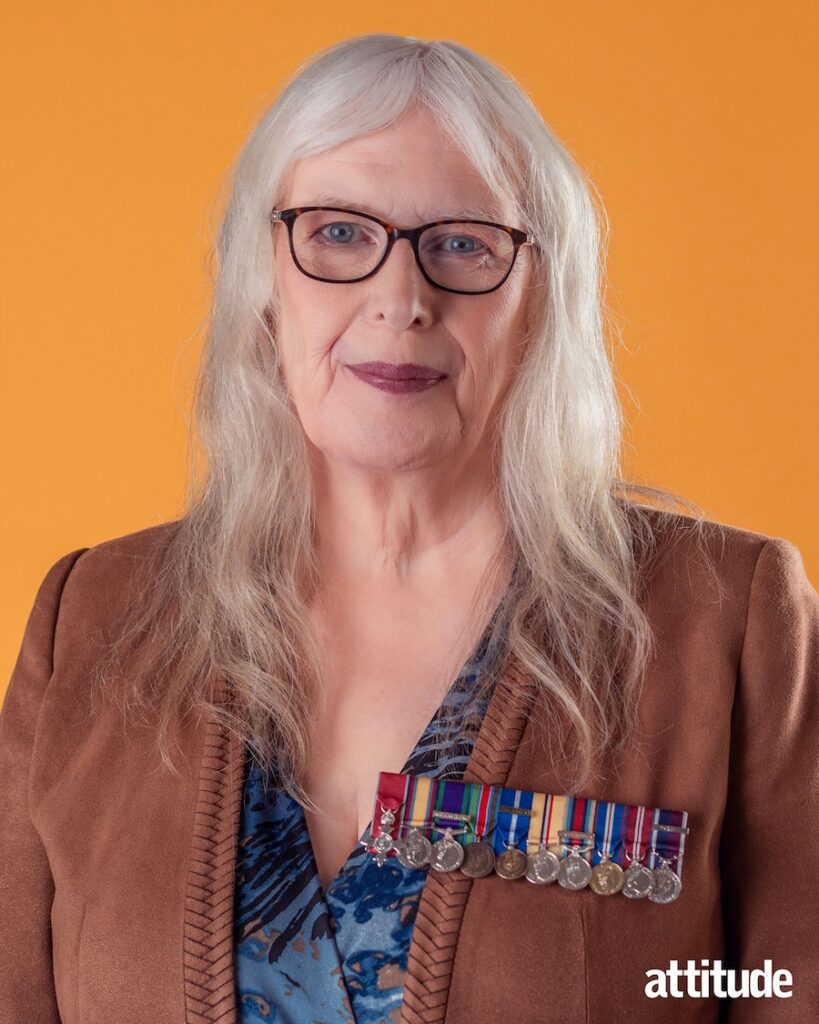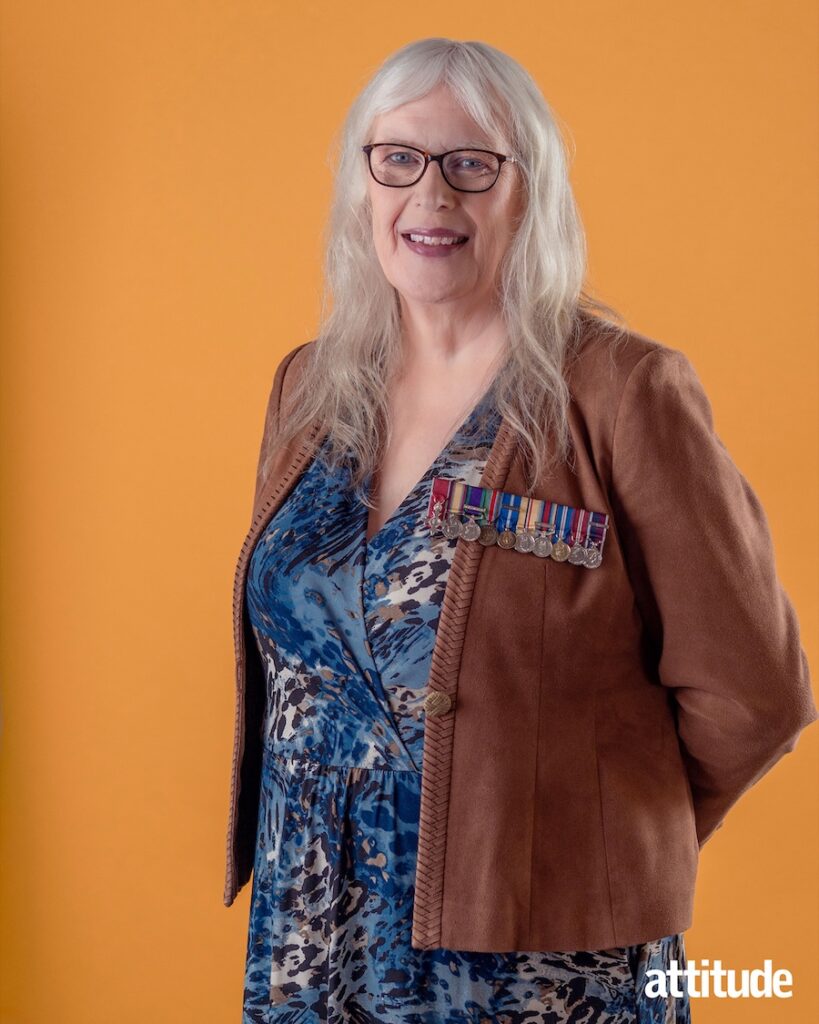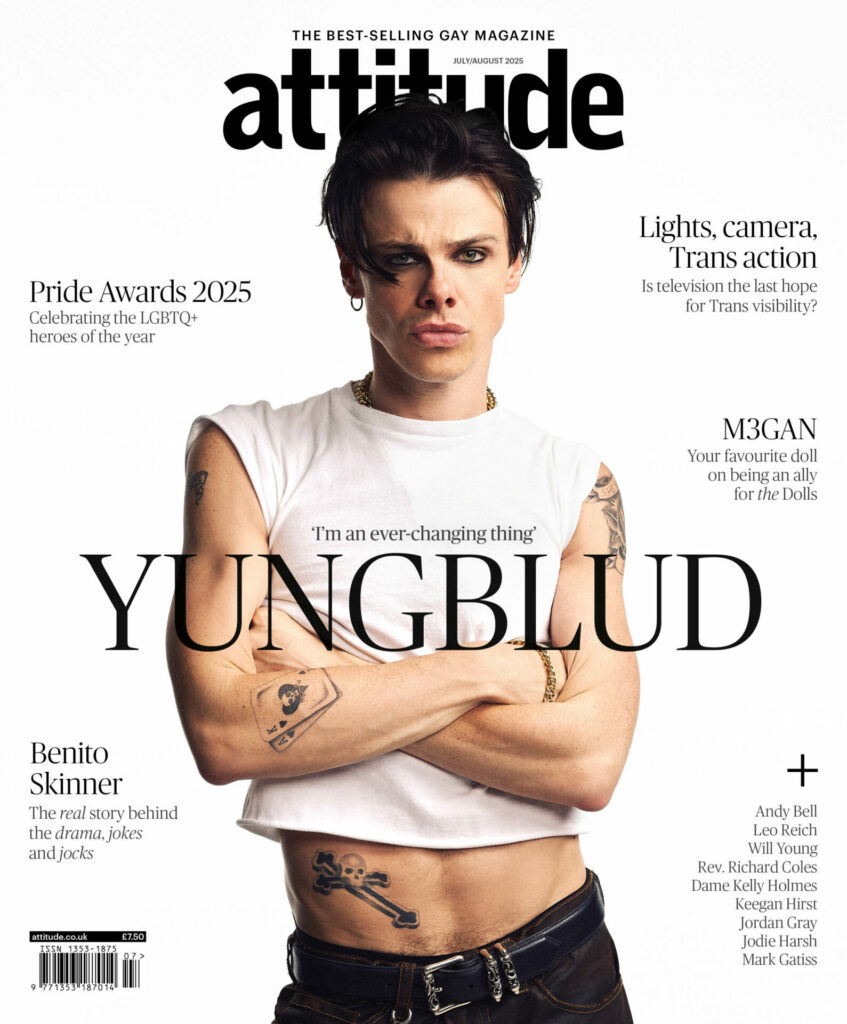How this RAF veteran became UK Armed Forces’ first publicly trans officer – and changed society in the process
Flight Lieutenant Caroline Paige, an honouree at the PEUGEOT Attitude PRIDE Awards, supported by British Airways, stared danger in the face while doing military service in Bosnia. But nothing was as frightening as her fear of coming out as trans
“I got shot at plenty of times,” recalls Flight Lieutenant Caroline Paige MBE of her 35-year Royal Air Force (RAF) career, which began in 1980. “There were really scary moments. Flying jets in the 80s, we were losing 10 aircrew a year in accidents. It was the Cold War; you trained hard. The aeroplanes weren’t as advanced. I had crashes, which fortunately didn’t end up in injury. But coming out in that environment was far scarier. Nothing beats the fear of coming out to people you love as trans.”
In February 1999, while still in active service with the RAF, Paige came out at work, making history as the first publicly transgender officer to serve in the British armed forces. This, despite the UK’s LGBT military ban prohibiting queers from serving. (The ban was lifted in January 2000.) This is just one of the reasons we are honouring her at the PEUGEOT Attitude PRIDE Awards, supported by British Airways.

Although the ban was still in place, the RAF decided to retain her. “I was over the moon; it was a huge relief,” recalls Paige. The road ahead, however, was rocky. “I was outed on the front page of the newspapers. The public joined in, saying I was a liability, a danger.” This only fuelled Paige’s drive: a further 16 years and three commendations for exceptional service later, including one in the Queen’s 2012 New Year’s Honours List, she proved she was no liability.
“Military helicopters used to land in the back field behind our house. I’ve had the bug ever since.”
Slowly, Paige saw the forces’ outlook on the LGBTQ+ community transform from one of hostility to today’s environment of diversity and inclusivity. Now a D&I spokesperson, she also co-founded LGBTQ+ veterans’ charity Fighting With Pride (FWP). “So many aren’t aware of the reparations now available to them,” says Paige. “There is support available for those impacted by the ban, including financial recognition. Anyone impacted should contact FWP.”
Paige’s love of aviation began when she was five and living in Malaysia. “I grew up in a military family. My dad was in the Army,” she explains. “Military helicopters used to land in the back field behind our house. I’ve had the bug ever since.” Around then, Paige realised she “wasn’t who people assumed I was. I became very aware that wasn’t acceptable.”
She moved to the UK as a teen, gaining a Private Pilot Licence through an RAF Flying Scholarship as an air cadet. “The first time I went solo, at 15, in an open cockpit glider, the instructor said, ‘Off you go.’ Up to 2,000 feet,” she remembers. “Looking into north Wales, it was a beautiful blue-sky day, so calm. All my worries about who I was, the future, disappeared. Also, when my flying developed, it got more challenging and complicated — that gave me focus.”

Paige started out in the RAF as a navigator flying F-4 Phantoms, providing air defence of the UK and Falkland Islands during the Cold War. “Scrambling at all times of the day and the night to intercept Soviet bombers — an amazing job,” she remembers.
In 1990, she was deployed to Saudi Arabia as a Tactical Air Operations Officer during the build-up to the Gulf War. In 1992, she volunteered for tactical troop-carrying helicopter operations in Northern Ireland. In 1995, during the Bosnian War, she was seconded to join the operational staff of the United Nations’ Anglo-French Rapid Reaction Force. “One of the most impactful times was in Bosnia, seeing the devastation, the horror of conflict,” she recalls. “I did that before I transitioned. I realised: ‘You need to grab hold of your own destiny.’ Life is precious, delicate.”
In Iraq, as part of a Medical Emergency Response Team, Paige helped rescue soldiers who were “critically injured, seriously ill. We’d fly in to extract them, get them to hospital. I saw some horrible stuff.”
Paige adds that war “is about power, greed and money. That’s all it ever is.”
“Was it worth losing family, job, house? The answer was yes.”
On a personal level, although her career was soaring, she felt she “missed” her twenties. “I’d go home and lock myself away to relax as Caroline, worried if I was found out, outed, or outed myself, it would all come crashing down.” In her thirties, she discovered hormones and began to question the “consequences” of publicly transitioning. “Was it worth losing family, job, house? The answer was yes. I started seeking private medical care at 37 and got a gender dysphoria diagnosis. At 38, I told my sister.”

During those early days of transition, Paige heard “only those negative voices”. “But when you understand it’s only a vocal minority, it makes a big difference,” she says. She speaks passionately about the power of allyship, especially in the shadow of April’s Supreme Court ruling that for the purposes of the Equality Act 2010, “woman”, “man” and “sex” refer to biological sex. “Sadly, the negative voices who shout loud are given prime space and freedom through the media,” says Paige.
“If young people only heard how much support there is out there, they’d [feel] safer.”
But she believes people’s minds can be changed. Of the pre-2000 military world, Paige says: “I was challenged. People still saw someone as trans as being gay, because the ban was in place. But I learnt on my journey to give people the opportunity to understand. They value that. It allows them to make an informed judgement.”
Allies, like the ones who supported Paige in the RAF, do exist. “These are dangerous times, but we’re in a better place than we realise — there’s so much support,” says Paige. “We’ve got allies within Parliament too. They just need to join up, be louder. If young people only heard how much support there is out there, they’d [feel] safer. What we need is academics and experts making statements, like the British Medical Association has.”
She pays tribute to those allies as she reflects on her recognition at our awards. “You have the opportunity, so you step up and do it. I’m honoured. But I always look at awards as ‘It’s not just about me.’ There’s an amazing bunch of people behind any award. Friends, family, allies — everybody who helps.” As a shining example of the best of our community, Paige is an ally to us all.
This feature appears in issue 365 of Attitude magazine, which is available to order online here and alongside 15 years of back issues on the free Attitude app.

